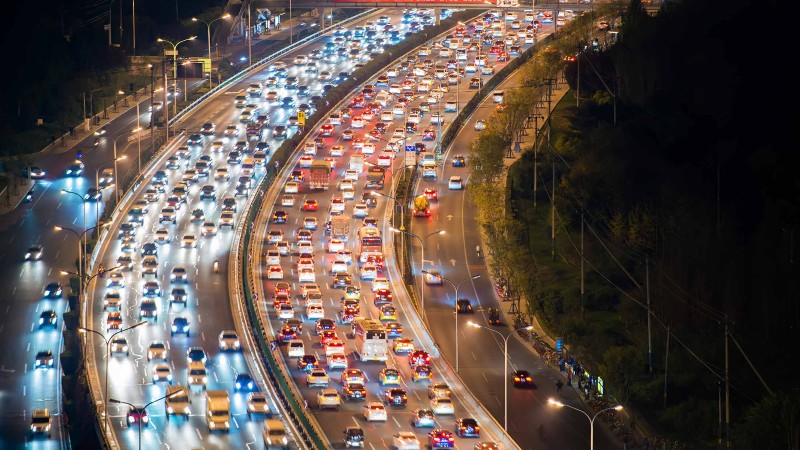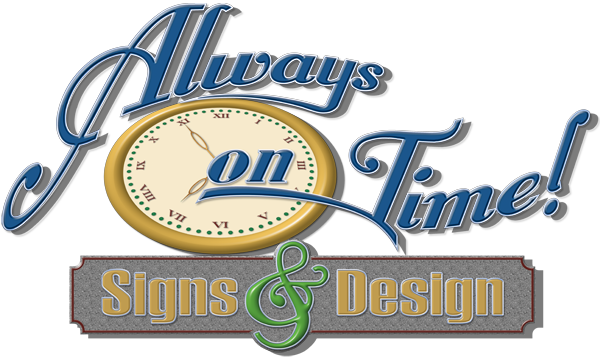
Highway signs play a critical role in maintaining safe, organized, and efficient traffic flow. Whether you are a government agency, contractor, or business owner, sourcing highway signs for sale requires more than just an eye for price and availability. Signs used on public roads must meet strict federal and state standards, including Department of Transportation (DOT) compliance, to ensure durability, visibility, and consistency. Purchasing non-compliant signs not only risks fines but can also compromise public safety.
Why Highway Signs Must Be DOT-Compliant
Highway signs are not just markers; they are federally regulated safety devices designed to guide drivers, reduce confusion, and prevent accidents. The Federal Highway Administration (FHWA) enforces uniform standards through the Manual on Uniform Traffic Control Devices (MUTCD). This document specifies design elements like size, shape, color, reflectivity, and placement.
Non-compliant signage creates risks. A poorly reflective stop sign, for example, could be invisible at night, leading to collisions. In addition, municipalities or contractors that install non-compliant signs may be held liable in the event of accidents. DOT-compliance is therefore both a legal requirement and a vital public safety measure. When purchasing highway signs, ensuring MUTCD adherence should be your top priority.
Understanding the MUTCD and State Regulations
The MUTCD provides baseline requirements nationwide, but each state can add its own specific guidelines. For instance, New England states may require certain winter-resilient materials or higher retroreflectivity levels due to frequent snow and reduced visibility. Buyers should review both MUTCD standards and state-specific supplements before purchasing.
Key MUTCD requirements include:
- Color codes (red for stop, green for guidance, orange for construction, etc.)
- Retroreflectivity standards ensuring night visibility
- Shape and size specifications (octagon for stop, diamond for warnings, rectangle for regulatory)
- Font and lettering requirements to maintain legibility
Understanding these rules helps buyers avoid costly mistakes and ensures every sign installed meets both federal and state laws.
Types of Highway Signs You May Need
Highway signage covers a wide range of functions. Before purchasing, it is helpful to understand the categories most required:
- Regulatory Signs
These include stop, yield, speed limit, and no parking signs. They inform drivers of laws and regulations that are enforceable by law. - Warning Signs
Diamond-shaped and typically yellow or orange, these signs alert drivers to potential hazards such as curves, merging lanes, or pedestrian crossings. - Guide Signs
Green background signs with white text provide directional or mileage information, helping motorists navigate. - Construction and Temporary Signs
Bright orange signs indicate work zones, lane closures, detours, and temporary hazards. These signs must meet stringent requirements due to the heightened risks of work zones. - Custom or Specialty Signs
Businesses or private property owners may need MUTCD-inspired signage, such as directional markers or safety reminders, which do not necessarily apply to public roadways but should still maintain professional quality.
Knowing the category you need streamlines the purchasing process and ensures you comply with relevant regulations.
Materials Used in DOT-Compliant Signs
Highway signs must withstand harsh outdoor conditions, from blazing summer heat to freezing winter storms. DOT-compliant signs are made with specific materials to ensure durability and visibility. The most common materials include:
- Aluminum: Lightweight, corrosion-resistant, and strong, aluminum is the standard for most highway signs. It resists rust and retains shape even in extreme conditions.
- Reflective Sheeting: Modern signs use retroreflective sheeting that bounces light from vehicle headlights back toward the driver. Different grades are available, such as Engineer Grade, High-Intensity Prismatic, and Diamond Grade, each offering higher levels of reflectivity.
- Protective Coatings: Signs may include UV-resistant coatings to prevent fading or weather damage.
When shopping, verify that your supplier uses MUTCD-approved materials. Cheaper, non-compliant alternatives may fail prematurely, costing more in replacements and risking safety.
Choosing Between Permanent and Temporary Highway Signs
Depending on your project or application, you may need permanent signs designed for long-term use or temporary signs for short-term construction projects.
- Permanent Signs: These are installed on highways, intersections, and municipal roads. They are designed for years of service, often using heavy-duty aluminum and high-grade reflective sheeting.
- Temporary Signs: These are commonly used in construction and maintenance zones. They may be mounted on portable stands or attached to barricades. Temporary signs must still meet MUTCD standards but are built for mobility and short-term use.
Contractors often find value in renting temporary signs, especially for projects lasting only weeks or months. Trusted suppliers frequently offer both purchase and rental options.
The Importance of Proper Installation
Even the best sign is ineffective if not installed correctly. Installation impacts visibility, longevity, and compliance. MUTCD guidelines specify mounting height, lateral placement, and orientation. For example, stop signs should be mounted at least 7 feet above ground in urban areas to avoid obstruction. Incorrect placement could result in liability or reduced safety.
Some suppliers offer not only signage but also professional installation services. Partnering with a full-service provider helps ensure every step, from design to deployment, aligns with federal and state requirements.
Red Flags When Shopping for Highway Signs
Not every supplier is equal. Some companies sell imitation or non-compliant products that can put buyers at risk. Watch out for these red flags:
- Lack of MUTCD or DOT compliance details on product listings
- Suspiciously low prices compared to industry standards
- Poor quality materials that feel flimsy or lightweight
- No warranty or return policy
- Limited customer support or inability to provide documentation
Working with reputable manufacturers or resellers ensures your purchase is legal, safe, and backed by reliable service.
Renting vs. Buying Highway Signs
For many contractors and municipalities, the decision to rent or buy depends on project duration and budget.
- Buying: Best for permanent needs or frequent use. Purchasing ensures you always have inventory ready.
- Renting: Ideal for temporary projects or when specialized equipment like message boards or speed trailers is required. Renting eliminates long-term maintenance costs and is often more cost-effective for short-term use.
Suppliers like Worksafe Traffic Control Industries provide flexible options, allowing organizations to balance cost with operational needs.
Trusted Suppliers: What to Look For
Selecting a trusted supplier is one of the most important steps in buying highway signs legally. A reliable partner will:
- Demonstrate compliance: Clearly state MUTCD and DOT adherence for all products.
- Offer full-service solutions: From design and manufacturing to installation and maintenance.
- Provide rental and purchase flexibility: Especially for temporary or specialized equipment.
- Maintain a strong reputation: Years of proven service in traffic safety signal reliability and industry expertise.
- Support advanced technology needs: Many modern projects require intelligent traffic solutions like dynamic lane merge or real-time traffic information.
Choosing a supplier with a comprehensive range of services simplifies logistics and ensures long-term reliability.
The Role of Smart Work Zone Solutions
Highway safety increasingly depends on smart work zone technologies. These systems integrate hardware and software to provide real-time traffic management. Examples include:
- Dynamic message signs: Display custom alerts or detour information.
- Queue detection systems: Warn drivers of sudden traffic slowdowns.
- Speed trailers and radar feedback signs: Encourage safer driving behavior.
- Conflict warning systems: Alert motorists to approaching hazards.
When sourcing highway signs, consider whether your supplier also offers these complementary solutions. The integration of traditional signage with smart technology significantly enhances roadway safety.
Partnering with Worksafe Traffic Control Industries
For over 25 years, Worksafe Traffic Control Industries has provided municipalities, contractors, and businesses across New England with compliant, reliable, and innovative traffic safety solutions. As a manufacturer of municipal, highway, construction, and commercial signs, Worksafe ensures every product meets DOT and MUTCD standards. Beyond signs, Worksafe offers a wide range of rental equipment, including message boards, arrow boards, traffic signals, trailer-mounted video cameras, queue detection systems, speed signs, and microwave technologies.
Worksafe specializes in smart work zone and real-time traffic solutions, offering turnkey services from design through implementation. With 24/7 maintenance and repair services, customers benefit from peace of mind knowing that the equipment will function reliably throughout any project. Whether you need real-time traffic information, conflict warnings, or alternative route messaging, Worksafe delivers comprehensive safety solutions tailored to your needs.
Make Safety and Compliance Your Priority
Buying highway signs legally is more than a procurement process. It is a commitment to safety, compliance, and quality. By ensuring MUTCD adherence, choosing the right materials, verifying supplier credibility, and considering advanced traffic solutions, you safeguard both drivers and your organization. Avoid shortcuts that compromise safety or expose you to legal risk. Instead, invest in reliable, compliant signage and technology.
If you are searching for highway signs for sale or need temporary traffic control equipment for an upcoming project, Worksafe Traffic Control Industries is your trusted partner. Contact us today to explore purchase or rental options and discover how over 25 years of experience in traffic safety can serve your project.

